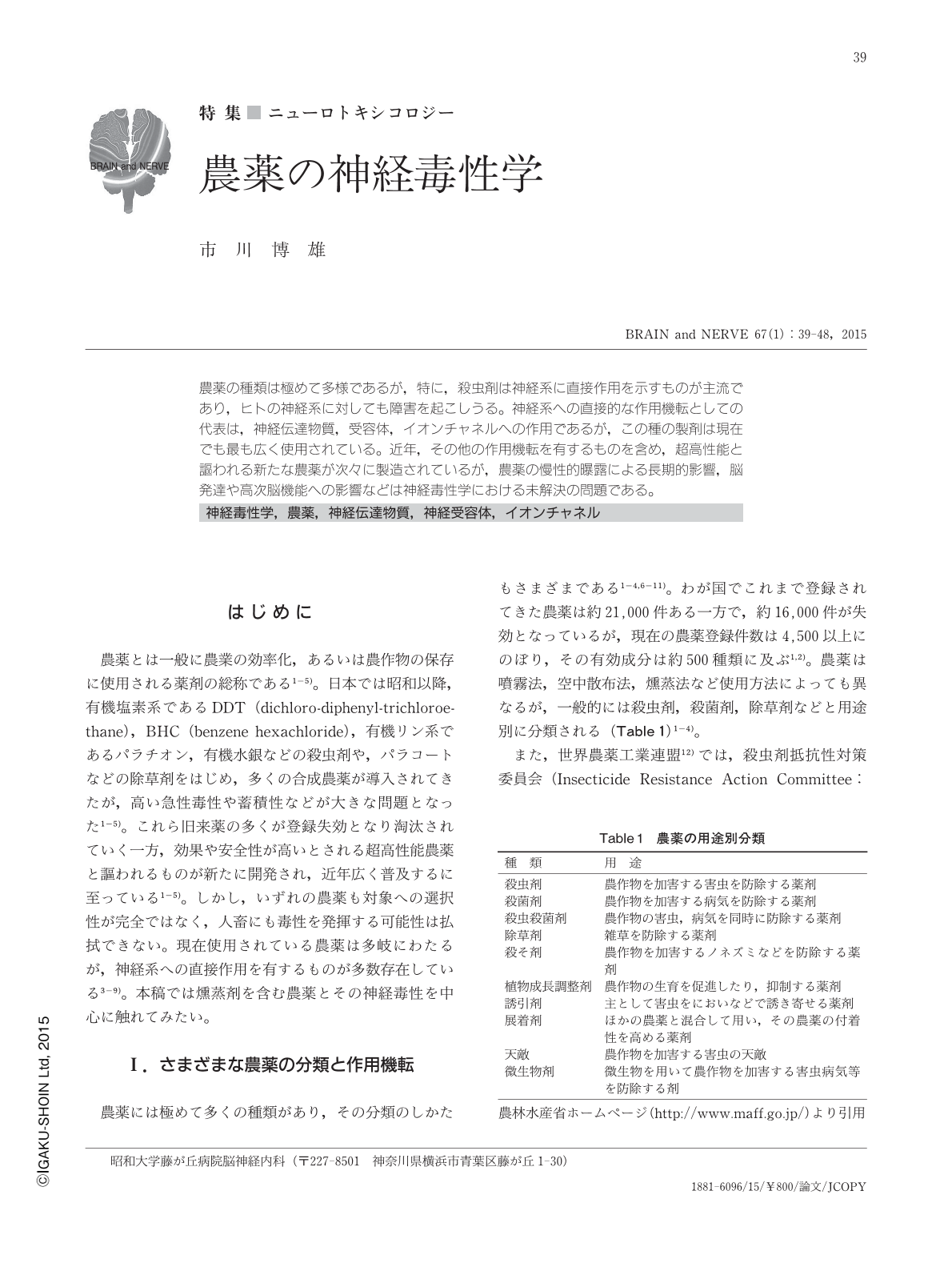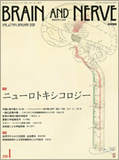Japanese
English
- 有料閲覧
- Abstract 文献概要
- 1ページ目 Look Inside
- 参考文献 Reference
農薬の種類は極めて多様であるが,特に,殺虫剤は神経系に直接作用を示すものが主流であり,ヒトの神経系に対しても障害を起こしうる。神経系への直接的な作用機転としての代表は,神経伝達物質,受容体,イオンチャネルへの作用であるが,この種の製剤は現在でも最も広く使用されている。近年,その他の作用機転を有するものを含め,超高性能と謳われる新たな農薬が次々に製造されているが,農薬の慢性的曝露による長期的影響,脳発達や高次脳機能への影響などは神経毒性学における未解決の問題である。
Abstract
Pesticides have been used for many years for preventing, destroying, repelling, or mitigating pests such as insects, rodents, and weeds. However, most pesticides are not completely specific for pests and can also induce damage to the human nervous system. In particular, insecticides often directly targets the nervous system by affecting major targets such as the neuro-transmitter metabolism, neuronal receptors, and ion channels; acetylcholine (ACh) esterase for organo-phosphates and carbamates, nicotinic ACh receptor for neonicotinoids, γ-aminobutyric acid receptors/chloride channels for organochlorides and fipronil, and voltage-gated sodium channel for pyrethroids. Additional targets include sites in the sodium channels, glutamate-gated chloride channels, and octopamine and ryanodine receptors. Several pesticides also produce adverse neurological effects indirectly by disrupting the general cellular mechanisms that support the high metabolic activity of the nervous system. Nowadays, more potent pesticides are being developed as replacements for the older, harmful ones. Pesticide neurotoxicity in humans may involve the central or peripheral nervous system or both and may induce typical neuronal damage in case of acute poisoning even by new agents. However, whether effect of exposure to pesticides at below acute-poisoning threshold level remains unclear. Moreover, neurotoxicology for behavioral and higher-brain function remains an unresolved and a challenging problem.

Copyright © 2015, Igaku-Shoin Ltd. All rights reserved.


